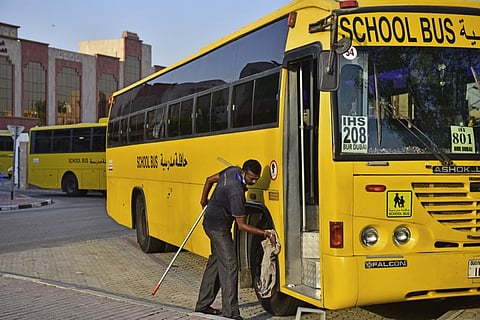Ministry of Education issues guide on 'severe violations' for school staff
Guide outlines professional, behavioral violations for all staff working in public schools

The Ministry of Education has released a new comprehensive guide outlining professional and behavioral violations for all staff working in public schools. The ministry classified violations into four levels, based on their severity and impact on students, the learning environment, and society—ranging from minor infractions to “severe violations” that may result in dismissal or legal accountability.
The guide sets a clear framework for addressing the issue of private tutoring, categorizing it as a severe violation marked with a “red line.” This applies both to teachers providing such lessons and to any school staff or administrators who facilitate them. The ministry also emphasized that accepting gifts from students or parents falls under second-level violations.
Severe violations
According to the guide, Level Four violations include teachers giving private lessons to their own students, exploiting school resources or professional relationships for personal gain, or enabling such practices by administrators. Other severe violations include smoking within school premises, sharing student data with unauthorized parties, discrimination among staff members, spreading rumors or posting videos from within the school, and forming inappropriate relationships with students, including improper electronic communication. Any verbal or physical behavior reflecting sexual misconduct or deviant tendencies is also considered a major violation.
Major violations
Level Three violations include concealing cases of psychological or physical harm to students, disclosing private information about parents, manipulating attendance records, negligence during exam monitoring or enabling cheating, mismanagement of financial resources, and falsifying academic records for reasons of favoritism or personal relationships.
Moderate and minor violations
Level Two violations include accepting valuable gifts from students or parents, neglecting the enforcement of the student behavior code, sleeping during working hours, and being late without permission. Level One violations include exceeding administrative authority, disregarding the chain of command, or any behavior that prevents staff from being properly identified during working hours.
Framework of values and principles
The guide defines professional conduct and the ethics of public service, emphasizing that professional behavior requires employees to perform their duties with honesty, integrity, and objectivity, within the scope of their delegated authority and in good faith—without negligence, legal breaches, or actions that harm the interests of the institution.
It also highlights the core values that must guide school staff, including: responsibility and accountability for words, actions, and outcomes; transparency in decisions and communications with colleagues and the community; teamwork through collaborative efforts with employees and partners; and prioritization of key objectives.
The ministry stressed that the guide reflects the importance of public school staff and their role in shaping future generations, while clarifying their educational, professional, and ethical responsibilities.
Clarifying the rules
The ministry explained that the guide aims to reinforce an institutional culture in public schools built on strong professional and ethical foundations, and to clarify codes of conduct for employees. This, it said, strengthens their vital role in educating students, raising academic and behavioral standards, and achieving global excellence in line with the UAE leadership’s vision.



